When considering if a dog can eat donuts, it’s crucial to understand that while dogs may express interest in consuming them, it’s not advisable due to the potential risks involved. Donuts are high in glucose, fat, and often contain toxic ingredients like chocolate or artificial sweeteners, which can lead to digestive upset and pose serious threats to dogs.
While dogs will eat donuts if given the opportunity, it’s imperative for pet owners to prevent this behavior to safeguard their pet’s well-being. Instead, opt for dog-specific treats formulated with canine nutritional needs in mind to ensure the well being of your furry companion. If a dog has eaten donuts or displays signs of digestive distress, seeking veterinary care promptly is essential to address any issues and prevent further complications.
Dogs have a keen interest in whatever food their human companions are consuming, often prompting the question of whether they can indulge in fun snacks like donuts. While a dog is primarily carnivores, their curious nature may lead them to sample various food items meant for humans, including those that are not necessarily suitable for their digestive systems. Letting your dog eat Donuts, with their sweet and fatty composition, raise concerns regarding their potential impact on canine health.
Understanding what foods are safe for a dog is crucial for responsible pet ownership. Donuts, typically high in artificial sweetener , fat, and possibly toxic ingredients like chocolate or xylitol, can pose significant risks to canine health if eaten in large quantities or regularly.
Pet owners must be aware of the potential consequences of their pup having such indulgent food items for Humans.
Even small amounts of certain ingredients found in donuts can lead to digestive upset, obesity, pancreatitis, or more severe health issues in dog. Therefore, the significance of this topic lies in educating pet owners about the importance of providing a balanced and appropriate diet for their furry companions to ensure their well-being and longevity. lets get into deriving an answer to the big question: Can a dog eat donuts? If your dog has never eaten donuts before, and you are wondering if that can be fed, a short answer is, No.
Nutritional Composition of Donuts

Donuts typically consist of a combination of flour, sugar, oil, eggs, milk or water, and leavening agents such as yeast or baking powder. The primary ingredient, flour, provides the structural base for the donut. White flour is commonly used, although some recipes may incorporate whole wheat flour for added fiber.
Sugar is a key component, contributing to the sweet taste and golden color of the donut. Various types of sugar may be used, including granulated sugar, powdered sugar, or corn syrup. Donuts are not suitable for your dog and can pose several risks if eaten.
The ingredients commonly found in donuts, such as sugar and fried fats, can be dangerous to canine health.
Sugar can lead to obesity, dental issues, and even diabetes if eaten regularly. The high-fat in fried donuts can contribute to body weight gain and digestive problems in your dog, potentially leading to conditions like pancreatitis.
In addition to the risks associated with sugar and fried fats, other ingredients commonly found in donuts can also be dangerous to your dog. For instance, milk chocolates are highly toxic to them due to the presence of theobromine, a compound that can cause vomiting, diarrhea, rapid breathing, increased heart rate, seizures, and even death in severe cases. Dark chocolate and baking chocolate contain higher levels of theobromine and are particularly dangerous to your dog even in small quantities.
Xylitol, a sugar substitute often used in sugar-free donuts or their glazes, is another ingredient that poses a significant threat to canine . Xylitol consumption can cause a sudden release of insulin in the dog, leading to dangerously low blood sugar levels (hypoglycemia).
Signs of xylitol poisoning in the dog include vomiting, lethargy, weakness, seizures, and in severe cases, liver failure. Even a small amount of xylitol can be toxic to the dog, so it’s crucial for dog owners to be vigilant and avoid giving any foods containing this sweetener to their pets.
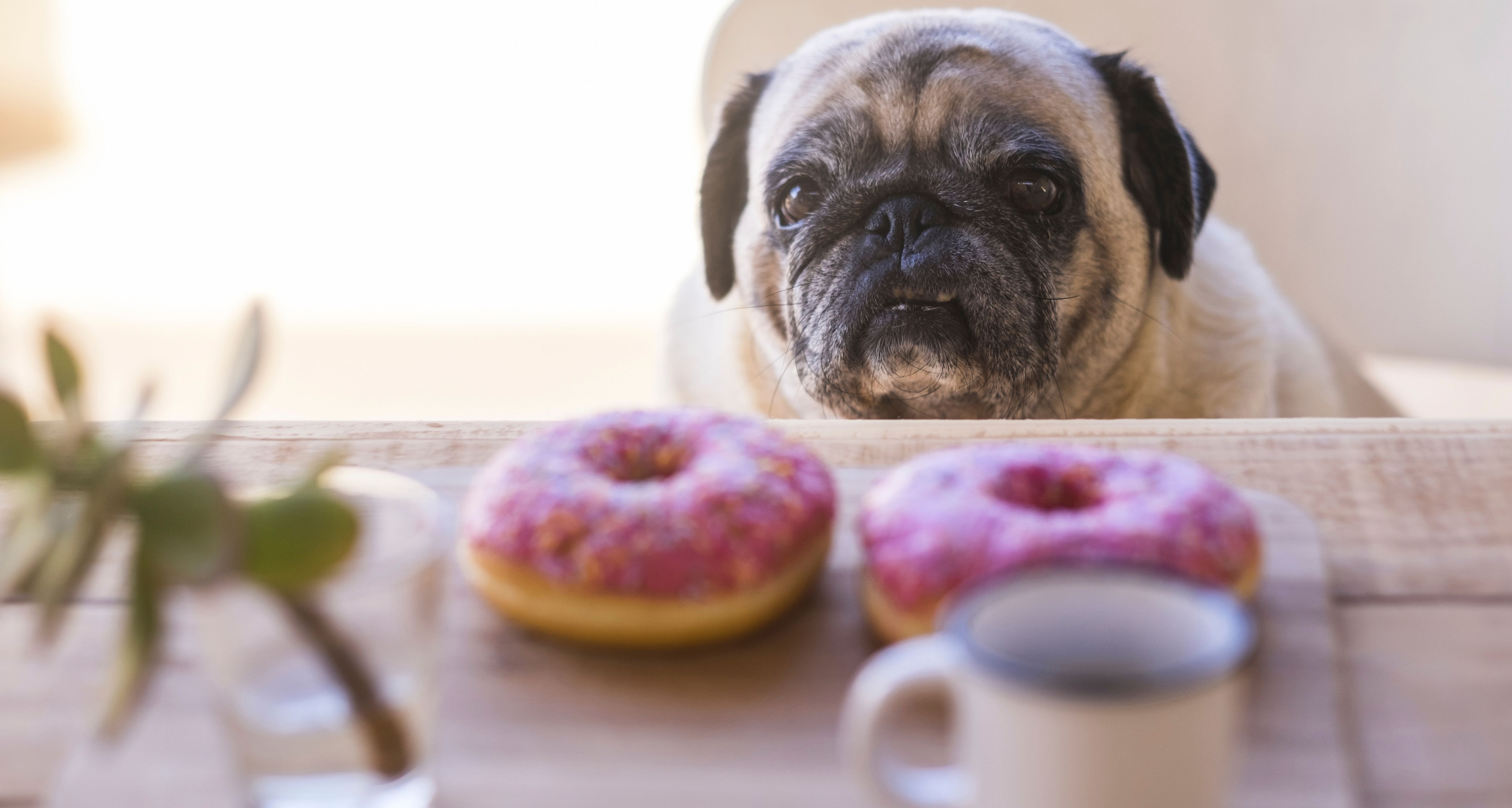
Furthermore, the high calorie and low-nutrient nature of donuts can contribute to nutritional imbalances if eaten regularly. While dogs may enjoy the taste of donuts, they do not provide the essential nutrients that your pup needs for optimal robustness. if a dog eats donuts as a regular food item, it can lead to weight gain, upset stomach, nutrient deficiencies, and other issues over time.
If a dog eats donuts can lead to upset stomachs due to various factors. The combination of high fat and sugary content often triggers gastrointestinal disturbances, resulting in upset stomachs characterized by symptoms like vomiting and diarrhea. Additionally, certain ingredients in donuts, such as chocolate or artificial sweeteners like xylitol, can exacerbate these upset stomachs and pose serious risks to them.
Therefore, it’s crucial for pet owners to be vigilant about preventing from ingesting donuts to avoid the discomfort of upset stomach and potential complications. If your pup ate donuts and does experience an upset stomach afterwards, you do not need to worry. it’s important to seek the help of a veterinarian immediately if your dog ate such products to address any issues and ensure the well-being of the animal.
While a plain donut may seem innocuous, they can still pose risks to your furry friend if eaten, just as sugared donuts will . if dogs eat donuts be it plain or any type of donuts made with ingredients meant for humans it can make their stomach upset and lead to other troubles.
Even though plain donuts don’t contain ingredients like chocolate or artificial sweeteners that are explicitly toxic to dogs, they are still highly sweet and fat rich, which can lead to upset stomachs and other digestive issues in the dog. same goes for glazed donuts. if your dog has eaten sugared donuts or seems to be loving glazed donuts before and seemed to be fine, you still should avoid feeding donuts.
Overall, the potential implications of giving donuts to your dog extend beyond just the sugary aspect and fat . Dog owners must exercise caution and refrain from giving any type of donut or similar sugary, fatty snacks to their furry friend.
Instead, they should prioritize feeding their dogs a balanced diet consisting of high-quality dog food and occasional healthy little snacks specifically formulated for canine to eat. Regular exercise and veterinarian check-ups are also essential components of maintaining a dog’s overall well-being.
Potential Risks and Concerns

Feeding donuts to dogs can pose several potential risks and concerns that pet owners should be aware of. These risks primarily stem from the highly sugary and fatty content of the donut, as well as the presence of harmful ingredients such as chocolate or xylitol. Understanding these risks is crucial for ensuring well-being of canine companions. Let’s explore each of these concerns in more detail:
High Sugar Content
Impact on canine health, including obesity and dental issues
Donuts contain high levels of sugar, which can have detrimental effects on canine if eaten regularly. Excessive intake can lead to obesity in dogs, increasing the risk of various problems such as diabetes, joint issues, and cardiovascular disease. Moreover, the sugary nature of a donut can contribute to dental issues in dogs, including tooth decay and gum disease.
Bacteria in the mouth feed on it, producing acids that erode tooth enamel and lead to dental decay. Over time, untreated dental problems can cause pain, discomfort, and even systemic health issues in dogs.
High Fat Constituents
Risk of pancreatitis and digestive troubles
The high-fat found in a donut, particularly due to frying, poses significant risks to the canine. your Dog is not well-equipped to handle large amounts of fat, and to eat fatty foods like donuts can lead to pancreatitis, a painful and potentially life-threatening condition.
Pancreatitis occurs when the pancreas becomes inflamed when the dog eats high-fat foods, resulting in symptoms such as vomiting, diarrhea, abdominal pain, and decreased appetite. Additionally, the rich and greasy nature of the donut can cause digestive upset in dogs, leading to symptoms like diarrhea, bloating, and gas.
Ingredients Harmful for Dogs
Chocolate or cocoa-based ingredients
Chocolate contains theobromine, a compound that is toxic to dogs. Even small amounts of chocolate can cause adverse reactions in dogs, including vomiting, diarrhea, rapid heart rate, tremors, seizures, and in severe cases, death. Donut with chocolate toppings or cocoa-based ingredients pose a significant risk to canine well being and should be strictly avoided.
Xylitol as a sugar substitute
Xylitol is a sugar substitute commonly used in sugar-free donut and other products. While safe to eat for humans , xylitol is highly toxic to dogs and can cause a rapid release of insulin, leading to hypoglycemia (low blood sugar).
Symptoms of xylitol poisoning in dogs include vomiting, extreme sleepiness, weakness, seizures, and liver failure. Even small amounts of xylitol can be fatal to dogs, making it essential for dog owners to carefully check ingredient labels and avoid any products containing xylitol to their pets.
Signs of Toxicity or Digestive Issues

It’s essential for dog owners to be vigilant and recognize the signs of toxicity or digestive issues in their pets after consuming donuts or any other potentially harmful foods. If a dog ate sugary item like a donut and exhibits any symptoms of poisoning or digestive upset, immediate attention by a qualified vet should be sought to provide appropriate treatment and prevent further complications.
Symptoms of chocolate or xylitol poisoning in dogs
Chocolate poisoning
Most dogs who have ingested chocolate may exhibit symptoms such as nausea, diarrhea, increased thirst and urination, restlessness, rapid breathing, elevated heart rate, muscle tremors, seizures, and in severe cases, collapse or death. The severity of symptoms depends on the type and amount of chocolate consumed, as well as the size and symptoms status of the dog. Dark chocolate and baking chocolate contain higher levels of theobromine and are more dangerous than milk chocolate or white chocolate.
Xylitol poisoning
Dogs who have ingested xylitol may initially show symptoms such as vomiting, lethargy, weakness, and loss of coordination. As xylitol rapidly triggers the release of insulin, it can cause hypoglycemia (low blood sugar) within 30 minutes to 12 hours after ingestion. Signs of hypoglycemia in a pup include weakness, tremors, seizures, collapse, and coma. In severe cases, xylitol poisoning can lead to liver failure and death if not promptly worked upon by a vet.
Potential Digestive Problems Associated with Consuming Donuts
Digestive upset
The Dog may experience digestive issues after eating the donuts due to the high-fat content and ingredients that are not easily digestible for the pup. Signs of digestive upset may include vomiting, diarrhea, abdominal pain, bloating, gas, and discomfort.
The greasy nature of fried donuts can be particularly challenging for a dog’s digestive system to process, potentially leading to inflammation of the pancreas (pancreatitis) or exacerbating pre-existing gastrointestinal conditions. Additionally, the sugar content in donuts can disrupt the balance of beneficial bacteria in the gut, further contributing to digestive disturbances.
Choosing Safe and Delicious Options

As responsible pet owners, it’s crucial to prioritize their well being when it comes to their diet, including the ones we offer them. Here are some safe and healthy alternatives to donuts and other potentially harmful ones for your pup:
Recommended Alternatives
Safe and Healthy Options for Dogs
There is a wide variety of commercial options available on the market, specifically formulated to meet the nutritional needs of dogs. These come in various flavors, textures, and sizes to cater to different preferences and dietary requirements.
Look for high-quality ingredients, free from artificial additives, fillers, and unnecessary preservatives. Opt for those rich in nutrients such as protein, vitamins, and minerals, which contribute to your dog’s overall well being and vitality.
Homemade options using dog-safe ingredients
Another option is to make delicious snacking bites at home using dog-safe ingredients that are readily available in your kitchen. Popular choices include lean meats (e.g., cooked chicken, turkey, or ground beef), fruits (e.g., apple slices, banana chunks, or blueberries), and vegetables (e.g., carrot sticks, green beans, or sweet potato slices). Consider making a delicious peanut butter banana treats!
Eating rice and ground beef can offer a balanced diet, with rice providing essential carbohydrates and beef supplying crucial proteins. Rice, being easily digestible, is often recommended for dogs with sensitive stomachs or during gastrointestinal upset.
On the other hand, beef, rich in protein, iron, and B vitamins, contributes to muscle development and overall well being. Combining rice and beef creates a nutritious meal for dogs, but it’s important to monitor portion sizes to prevent weight gain and digestive issues. if you are worried, Consulting with a veterinarian ensures the diet meets the dog’s nutritional needs while avoiding overfeeding.
Providing dogs unseasoned chicken can be a nutritious addition to their diet. Chicken is a good source of protein, which is essential for muscle development and overall physical fitness in dogs. Unseasoned chicken, cooked thoroughly without added spices, herbs, or sauces, is generally safe for dogs to consume.
It’s important to remove any bones from the chicken before giving it to dogs, as cooked bones can splinter and cause choking or internal injuries. Additionally, avoid giving your dogs chicken skin, as it is high in fat and can lead to digestive upset or pancreatitis in some dogs.
When introducing chicken into a dog’s diet, start with small amounts to ensure their stomach tolerates it well. Monitor for any signs of allergies or digestive issues, such as vomiting, diarrhea, or changes in behavior. If a dog has a sensitive stomach or dietary restrictions, consult with a veterinarian before incorporating chicken or any new food into their diet. Read more here about our best dog foods for allergies.
To make safe dog donuts, use dog-friendly ingredients like whole grain flour, natural sweeteners, and healthy fats. Avoid toxic additives such as chocolate and xylitol. Bake the donuts without yeast, using baking powder instead. Ensure that it is cooled before serving, and feed them to your dog in moderation. Consulting with a vet for dietary guidance is always a good idea.
A bland diet for dogs, often recommended during digestive upset or when transitioning to new food, typically consists of easily digestible foods that are gentle on the stomach. a bland diet aims to soothe gastrointestinal irritation and provide essential nutrients without aggravating digestive issues further.
A common ingredient in bland diets for dogs is boiled chicken or lean ground turkey, which provides easily digestible protein. Alongside protein, rice is frequently included in bland diets due to its bland nature and ability to help regulate bowel movements. These two ingredients create a simple yet nourishing meal for dogs during times of gastrointestinal distress.
While butter is not typically included in a bland diet for dogs, it can be added in small amounts to increase palatability and provide some extra fat and flavor. However, it’s essential to use butter sparingly, as excessive fat can exacerbate digestive issues in dogs, particularly those with sensitive stomachs or a history of pancreatitis.
Be cautious about using ingredients that are dangerous to dogs, such as onions, garlic, grapes, raisins, and certain nuts. A Homemade delicious treat allows you to control the quality and freshness of the ingredients while providing your dog with a delicious and nutritious snack. If their condition leaves you worried after they ate donuts you may consult a veterinarian for their advice on ingredients without a need to wait for your dog to show more signs
Importance of Moderation and Portion Control
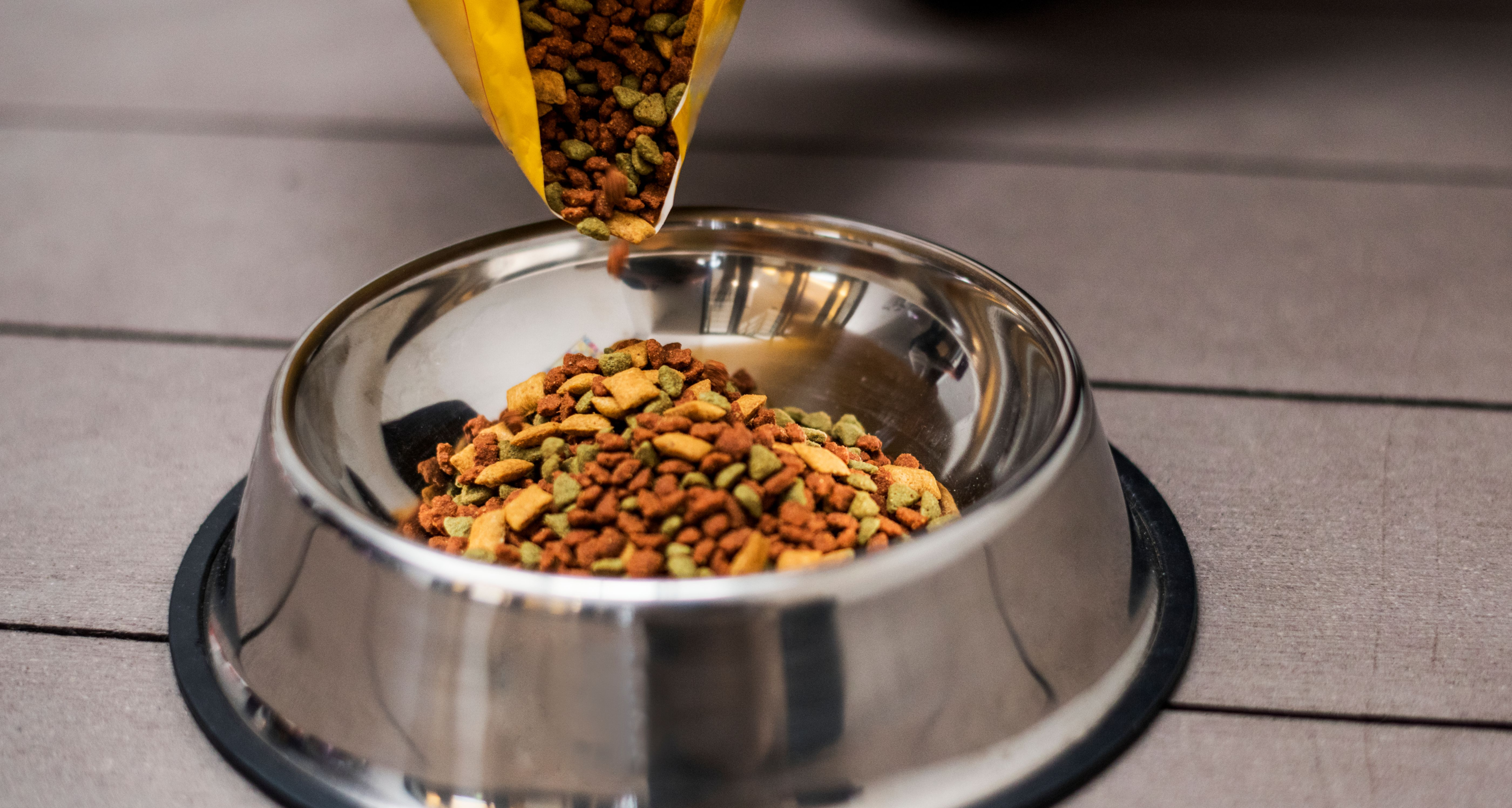
While a treat can be a valuable tool for training, bonding, and rewarding good behavior in dogs, it’s essential to practice moderation and portion control. it should only account for a small percentage of your dog’s daily caloric intake to prevent weight gain and nutritional imbalances.
As a general rule of thumb, any such thing should not exceed 10% of your dog’s total daily calories. if you dog ate more than that before, it is time to start controlling the portion size. Consider using smaller-sized ones for them to eat or breaking larger portions into smaller pieces to reduce calorie intake while still providing the reward your dog deserves. Additionally, adjust your dog’s regular meals accordingly to accommodate the calories eaten and maintain a balanced diet.
By offering safe and healthy alternatives and practicing moderation and portion control, you can ensure that your dog enjoys tasty rewards while maintaining optimal fitness and well-being. Remember to consult with your veterinarian for personalized recommendations instead of any self limiting thoughts based on your dog’s age, breed, size, activity level, and any underlying conditions.
Conclusion
Responsible pet ownership involves teaching the dog to eat a balanced and appropriate diet that meets their nutritional needs while minimizing the risk of complications. Avoiding giving donuts or similar sugary, fatty treat to dogs is crucial for maintaining their well-being.
Instead, opt for a commercial and delicious treat formulated for canine to eat for its dietary needs or any homemade treat using dog-safe ingredients. Practice moderation and portion control when offering a treat for your dog to eat, ensuring that they remain a small part of their overall diet. By prioritizing the well being and happiness of our canine companions, we can help them lead long and fulfilling lives.
So next time you are at Dunkin donuts, pass on the extra donut or donut hole and pick your pup up something a little better for canine consumption.

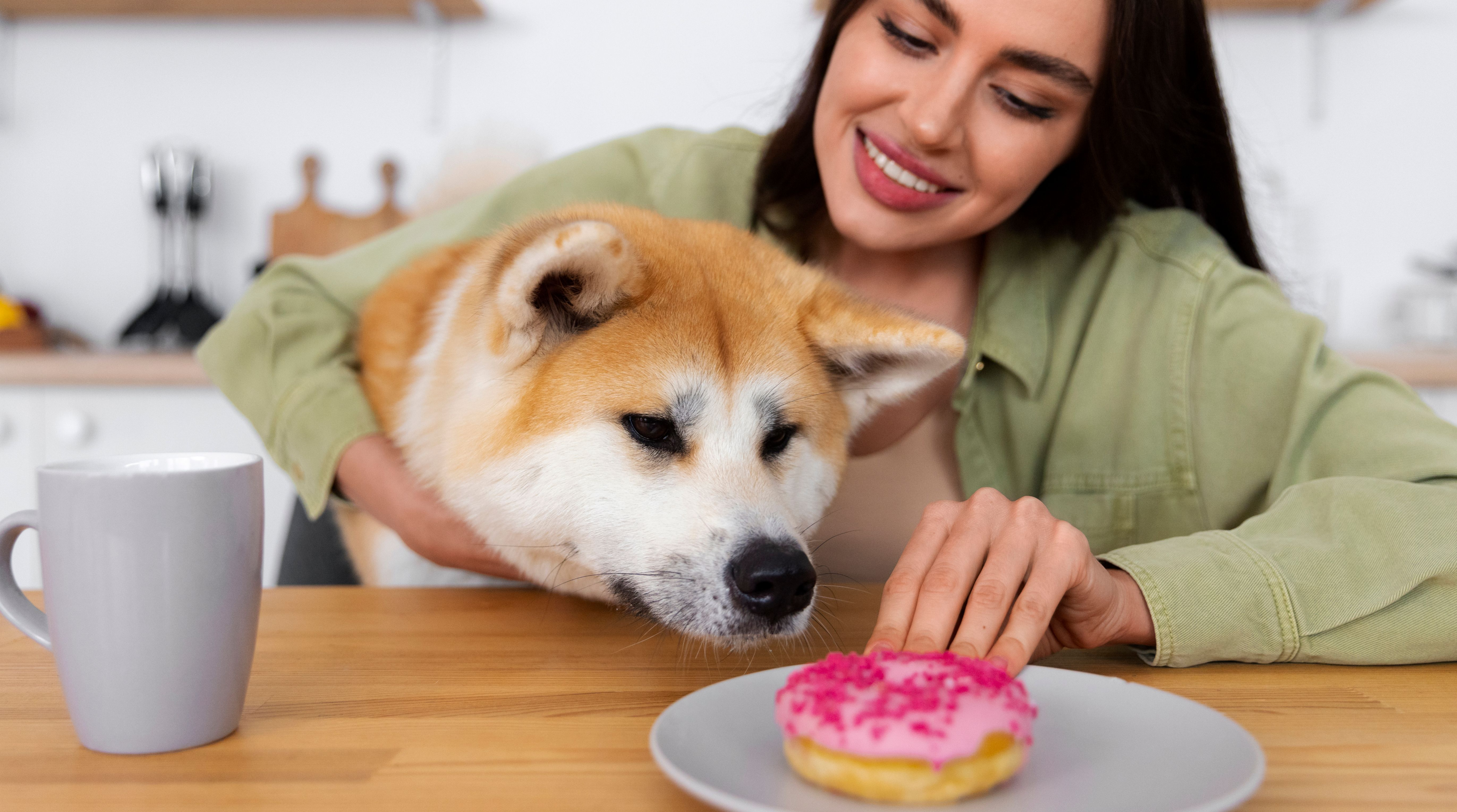

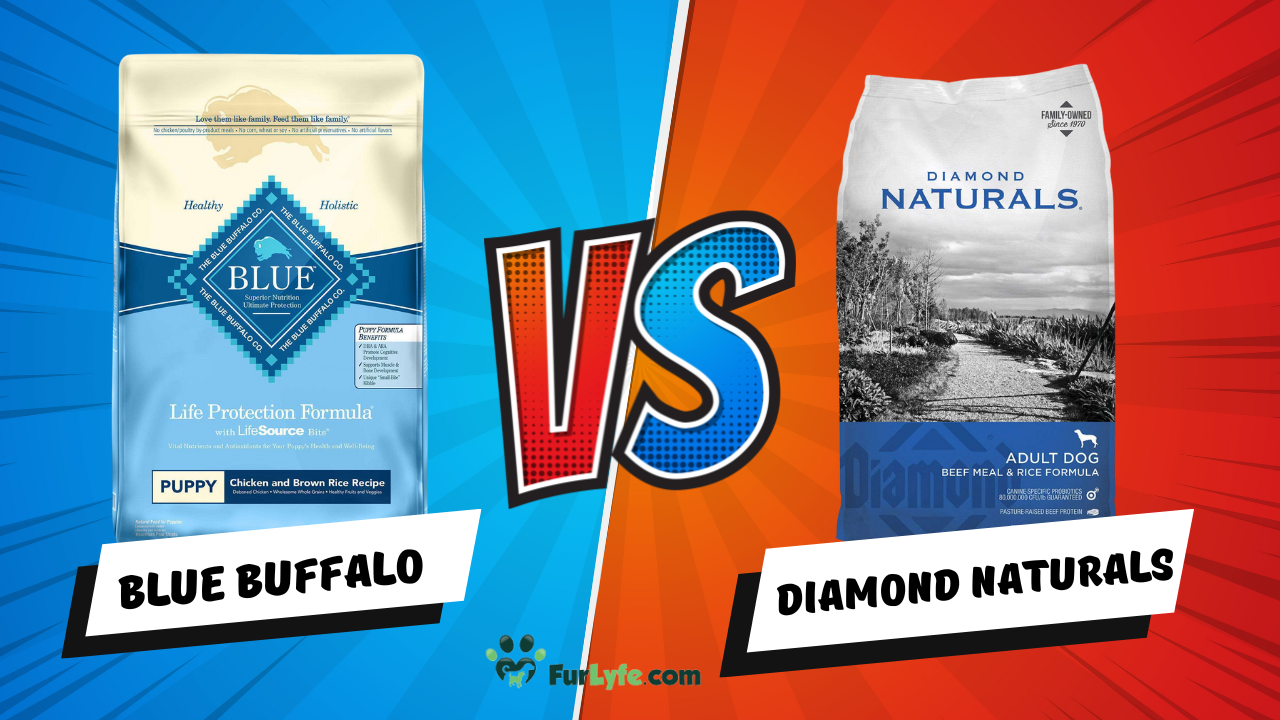
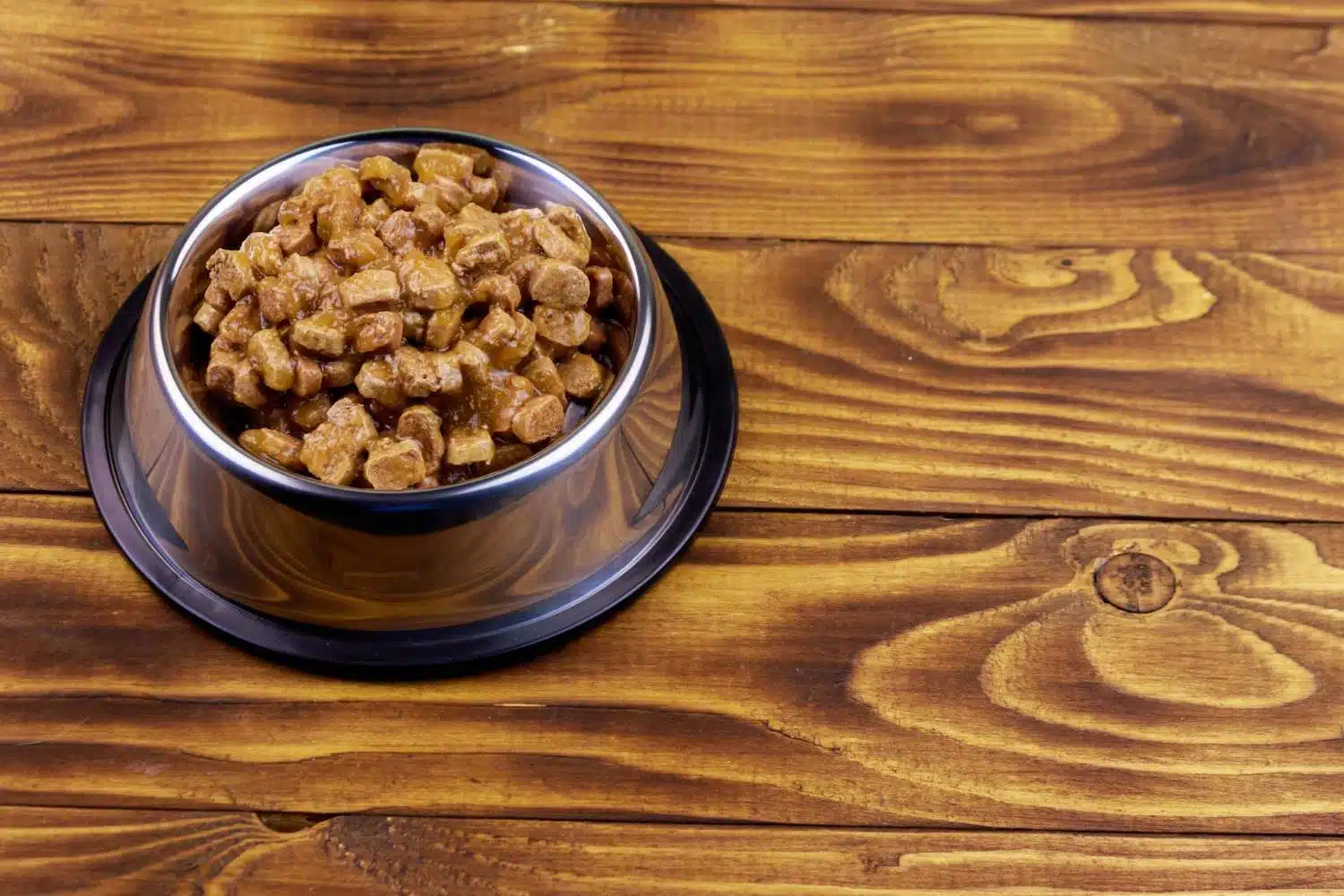
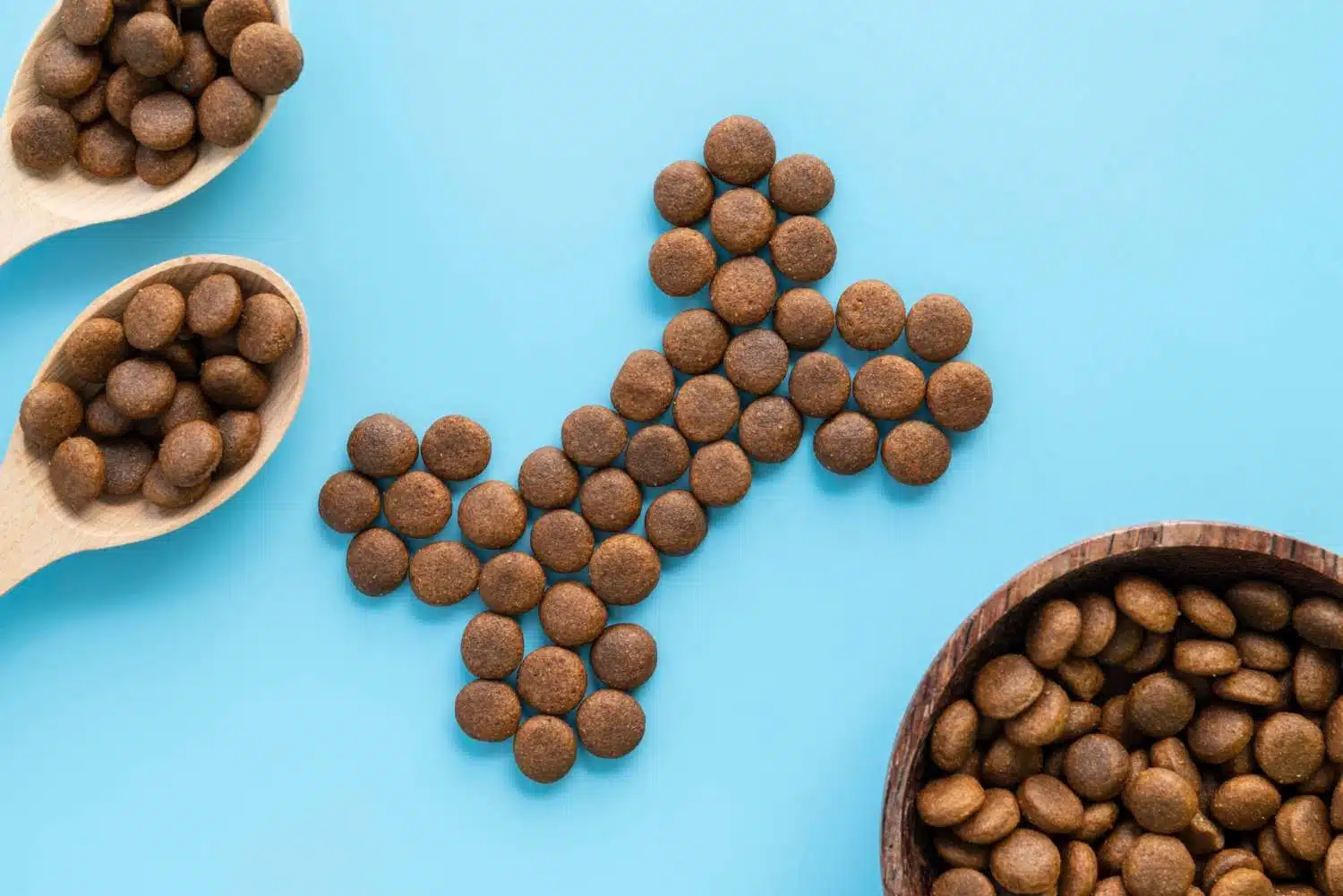

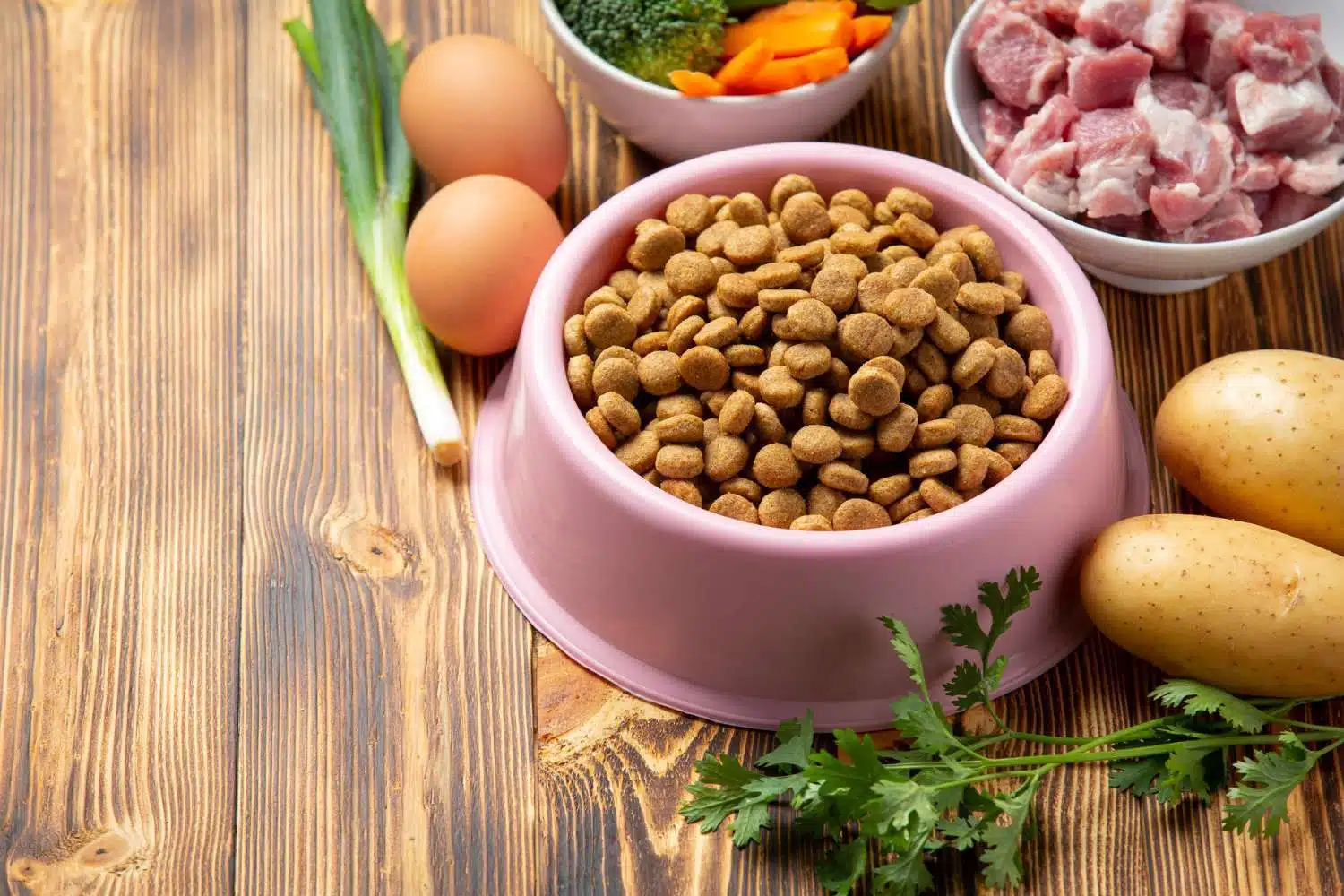

Get involved!
Comments